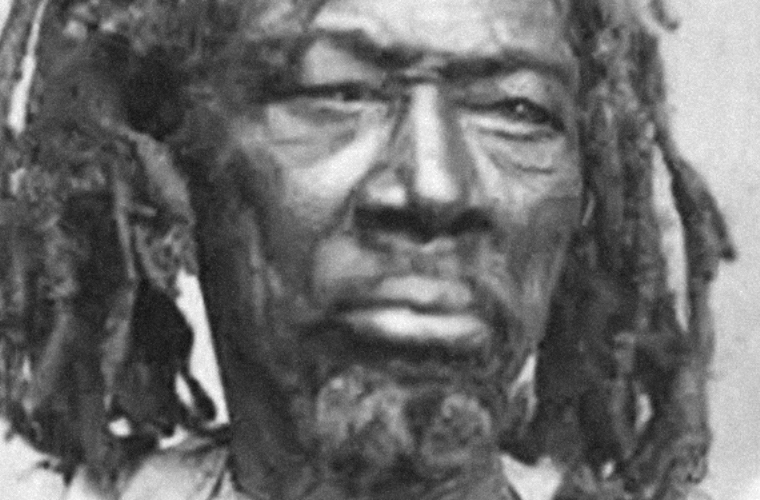Dutty Boukman (Also known as “Boukman Dutty”) (died 7 November 1791) was an early leader of the Haitian Revolution, enslaved in Jamaica and later in Haiti. He is considered to have been both a leader of maroons and Vodou hougan (priest).
According to some contemporary accounts Boukman alongside Cécile Fatiman, a Vodou mambo, presided over the religious ceremony at Bois Caïman, in August 1791, that served as the catalyst to the 1791 slave revolt which is usually considered the beginning of the Haitian Revolution.
Boukman was a key leader of the slave revolt in the Le Cap‑Français region in the north of the colony. He was killed by the French planters and colonial troops on 7 November 1791, just a few months after the beginning of the uprising. The French then publicly displayed Boukman’s head in an attempt to dispel the aura of invincibility that Boukman had cultivated. The fact that French authorities had to do this illustrates the impact Boukman made on the views of Haitian people during this time.
Dutty Boukman was a self-educated slave born on the island of Jamaica. After he attempted to teach other slaves how to read, he was sold to a French plantation owner and placed as a commander (slave driver) and, later, a coach driver. His French name came from his English nickname, “Book Man,” which some scholars, despite accounts suggesting that he was a Vodou houngan, have interpreted as meaning that he was a Muslim, since in many Muslim regions the term “man of the book” is a synonym for an adherent of the Islamic faith. It has been suggested that it is likely that Boukman “was a Jamaican Muslim who had a Quran, and that he got his nickname from this.” Others have suggested that Boukman may have practiced a syncretic blend of traditional African religion and a form of Abrahamic religion. Boukman was killed by the French in November 1791.

